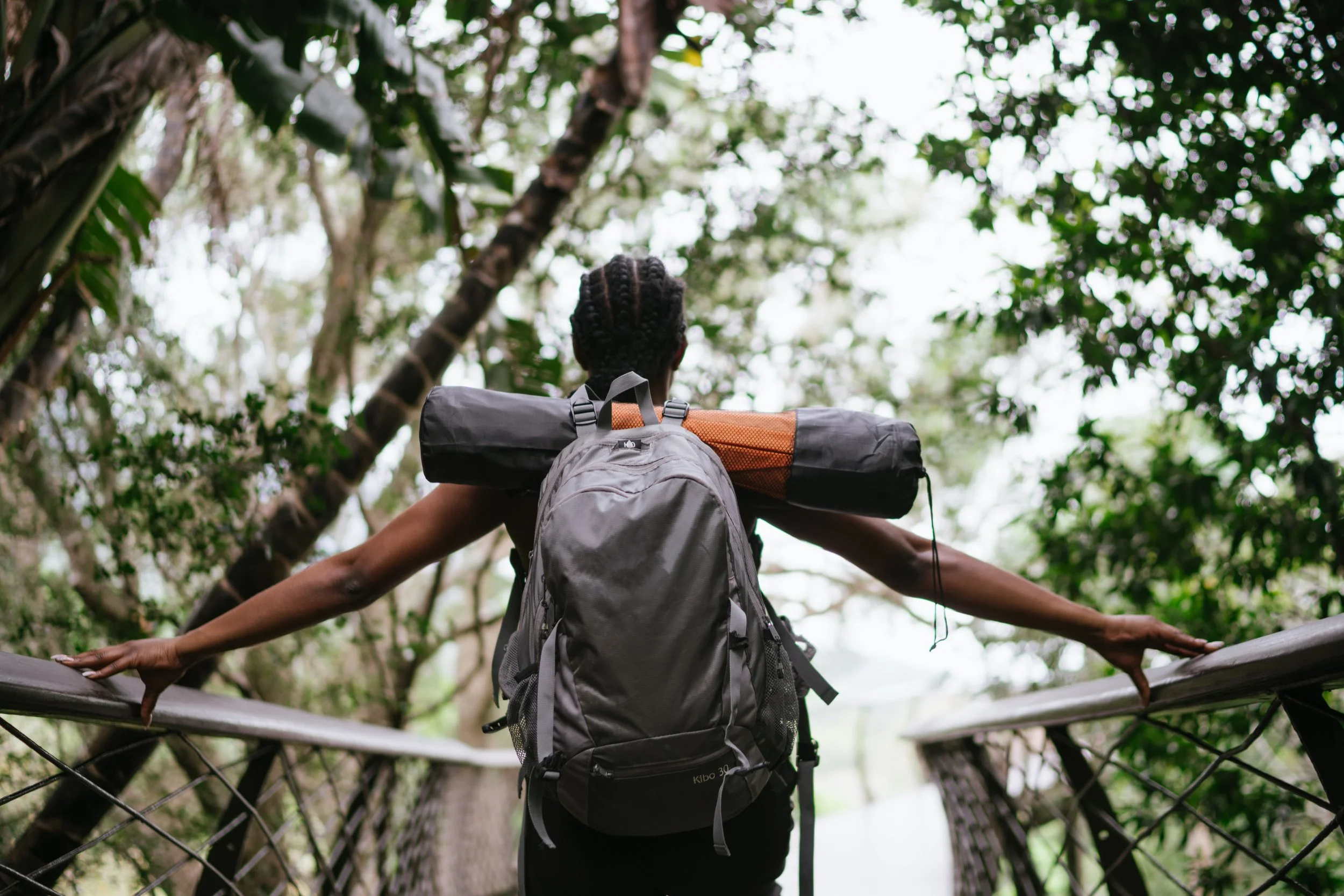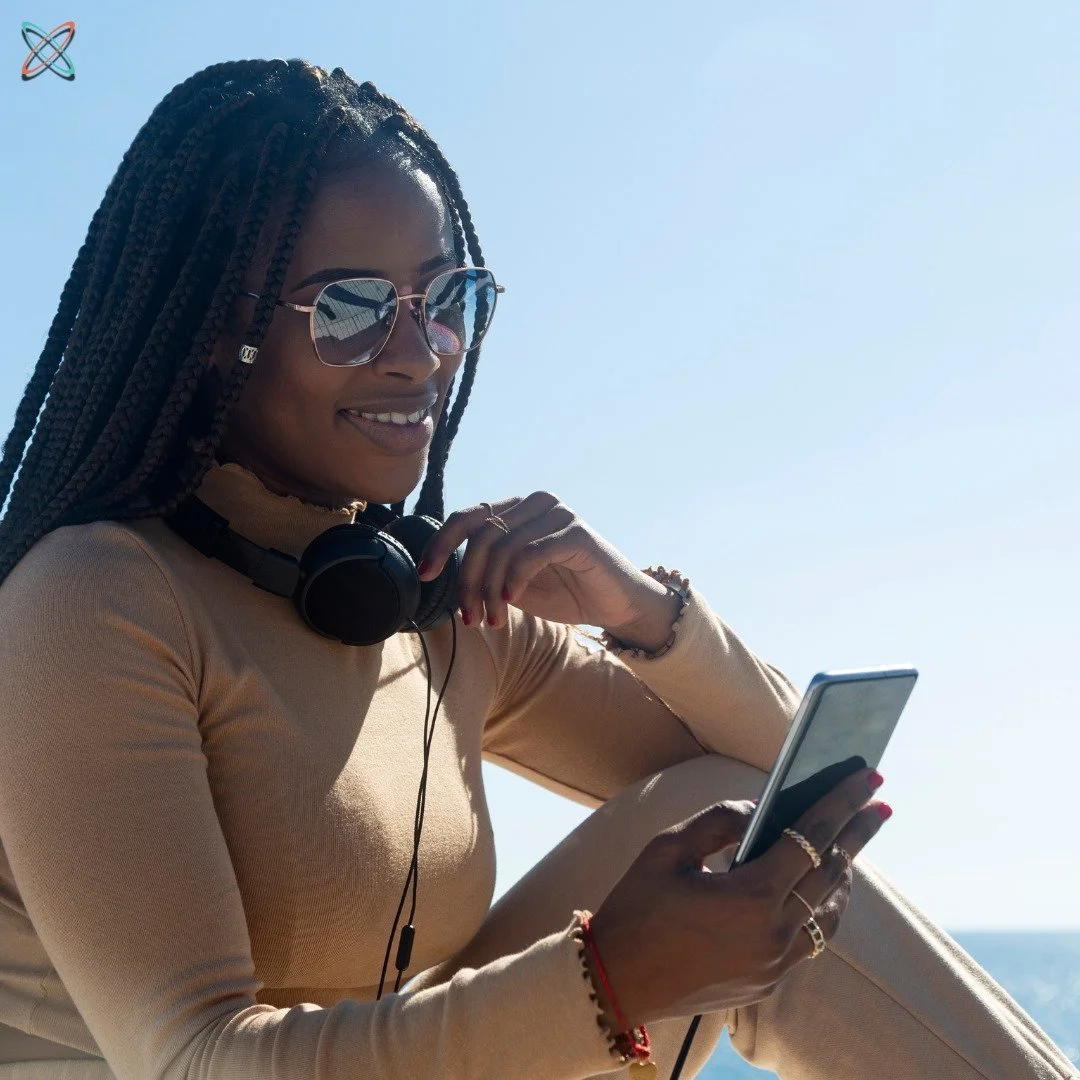Why the Black Community Still Needs Mother Nature
By Yolande Clark-Jackson
Most of us have heard that getting some sun or taking a walk outside will do us some good, but most of us would see going outside as a “nice to do” and not as a “need to do.” However, just as we need oxygen to breathe, we need exposure to nature to be our best selves.
Black people have a history working in harmony with the natural world for not only food but also for medicine. Ceremonies were built around the harvest seasons, food was eaten in season, and religious rites were performed to honor the land, rivers, and oceans. Although communing, connecting, and recreating with nature provides both physical and mental health benefits for all people, the natural world has been especially integral to the way Black and Indigenous cultures have healed and oriented themselves in the world.
Why We Still Need Nature
“It’s in our DNA,” says Christina Smith-Galloway, the Director of Innovation for Girl Trek’s Environmental Justice Agenda. GirlTrek is a nationwide walking organization that inspires Black women to walk as a form of healing and liberation. Their website also includes their larger vision, “We are a campaign to heal intergenerational trauma, fight systemic racism and transform Black lives.” Smith-Galloway says one of the biggest ways they are doing this is through walking. “It’s about nurturing, listening, and slowing down to pay attention.” She says by walking, you can see more of what needs to be done and what needs to be changed. Without a connection to what's going on outside in the natural world, it’s hard to know what you’re missing.
On a personal note, Smith Galloway says gardening became an important part of her personal healing journey. She experienced a significant improvement in her mental health. Coming from a family of farmers, gardening also helped her reconnect to her family heritage.
Roots of Disconnection
Many Black people can trace their heritage back to farming. Unfortunately, the traumas related to slavery caused a major rupture in the perception of nature as a safe space or place for healing. Trauma and fear, industrialization, lack of land access and ownership, and migration out of the South to northern cities are all factors for why so many Blacks feel disconnected to nature or have a narrow view of how to access or benefit from it.
Barriers to Engagement
Some barriers to engaging with nature can come down to region and community. Some communities have walkability issues in terms of sidewalks, other communities have little access parks and open fields. Despite the region or community, fear of the unknown can also discourage Black people from going into the woods or enjoying a walk through a forest. And the weight of generational trauma memories, including can impact a person's willingness to engage with gardening as an option to improve their quality of life.
Smith-Galloway adds that the quest for perfection can also be a barrier to getting started. She wants Black people to know that reclaiming also means remembering. “As soon as you put your hand in the soil, the answers will come.”
Benefits Black People Can Gain from Reconnecting with Nature
According to the National Library of Medicine, exposure to nature helps us overcome mental fatigue and restores our capacity to direct attention more effectively. The site also mentions the ongoing research to confirm other mental health benefits. “Studies are beginning to assess long-term effects of nature exposure on depression, anxiety, cognitive function, and chronic disease.”
Other benefits of nature exposure include:
More patience
Better absorption of Vitamin D
Lower blood pressure
Decreased risk of cardiovascular disease
Less stress
Ways to Get Reconnected
One way to get reconnected is to see communing, connecting and recreating with nature as a form of self care and community care. Seeing yourself as part of nature instead of outside of it can also be a great cure for loneliness. “It’s a way to establish a connection to something bigger than yourself that you’re also a part of."
If you’re not sure how to get started on your reconnection journey, start with making small changes in the way you spend your days and weeks that can be both relaxing and restorative. Find a tree you can visit or read next to one day a week. Visit a Farmer’s Market in your area to purchase local foods in season or join a GirlTrek or other outdoor group near you to commune in the community.
If you feel like you’re not an “outdoorsy” person, here are a few ways to break through the barriers of discomfort:
If you don't want to invest in tending to your own garden, try walking through a garden or sitting on a beach near one.
If you don’t like hiking, take a long walk alone or with a friend three to four times a week.
If you don’t like swimming, try canoeing on a quiet lake.
If you're not comfortable walking through the woods alone, visit a state park and take a guided tour.
If you don't have a state park near you, visit a quiet area nearby where you can listen to natural sounds or commit to observing the sunrise or sunset as frequently as possible.
It doesn’t matter what form you choose, what matters is that you commit to a relationship with nature that aids in your overall sense of well being. Smith-Galloway says for Black people, a relationship with nature can not only heal us but help us learn more about who we are. ”Reconnecting with the land helps us hear our song and our story that was meant for us.”
Need more help or learning ways to slow down, reduce feelings of stress and/or anxiety? Reach out to us. Ibisanmi Relational therapists are trained and skilled professionals who provide a holistic approach to helping you achieve mental wellness.
You can be sure you’ll receive culturally affirming guidance suited for your unique situation. Book a free 15-minute consultation here.






